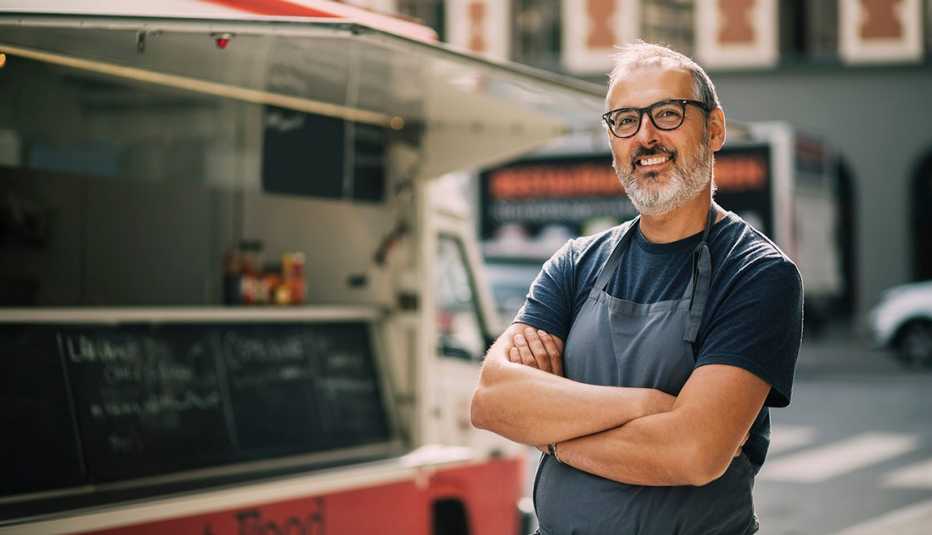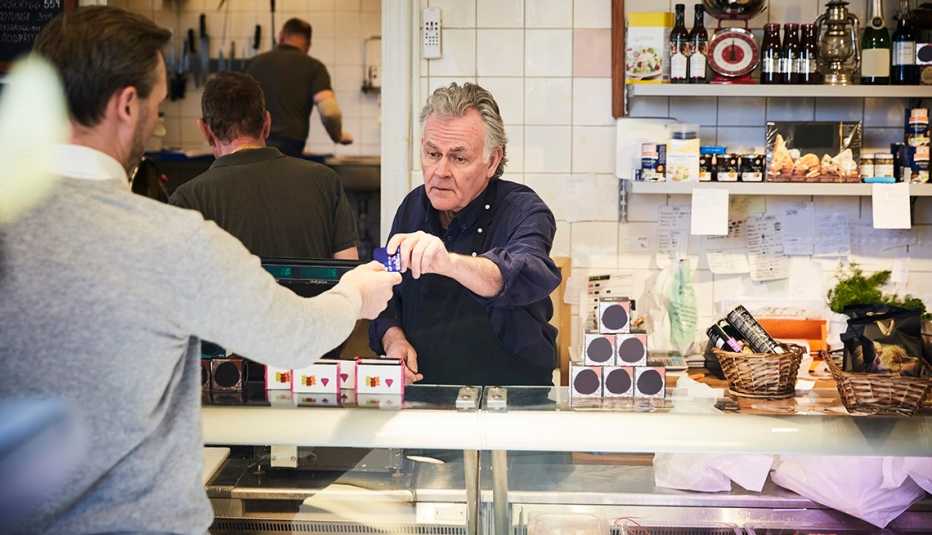AARP Hearing Center
Twyla Teitzel worked as a secretary at a private school, but over the past year the commute — and the rising price of gas — began to take a toll.
“It was fun and I liked it, but I didn’t really want to do it anymore,” Teitzel, 66, says of her day job. “I’m not in my 30s or 40s. What could I do?”
A vegetarian who had taught cooking classes and run cooking demonstrations at farmers markets for fun, Teitzel hit on an idea: She could become a social media influencer, focusing on plant-based foods and working for herself.
“I was able to turn my hobby into a business,” says Teitzel, who lives near Sacramento and has already started attracting sponsors for Plant Based Twy, her TikTok and YouTube channels, on her way to making a living from her newfound entrepreneurship.
It’s becoming a more common story among people age 55 and older, who are leaving conventional workplaces in favor of starting their own businesses, taking on side hustles to supplement their incomes, or simply keeping busy by venturing into moneymaking pursuits they may have always thought about but never got around to trying.
“There’s clearly more of this kind of thing going on,” says Norm Sherman, a former marketing and advertising manager and now a New York-based volunteer mentor at SCORE, formerly the Service Corps of Retired Executives, which provides free help to aspiring entrepreneurs.
“Especially when COVID hit, a lot of people got laid off or quit,” says Sherman, who is 74. “As they get into their late 50s and early 60s, they still need to work but can’t get a job. And that is driving a lot of people to decide to start a business.”
Many older adults are becoming entrepreneurs now
There has been an “unprecedented” rise in new business applications since the start of the pandemic, according to the Ewing Marion Kauffman Foundation, which does research on entrepreneurship. And it’s older workers who are far more likely to be self-employed.
Nearly 40 percent of Americans over 55 work for themselves, according to the Bureau of Labor Statistics, compared to fewer than 6 percent of 25- to 34-year-olds. Self-employment is greatest among people 65 and older than for any other age group.
While over-55s make up 21 percent of the U.S. population, they own more than half of all small businesses, according to SCORE. The organization calls them “encore entrepreneurs.”































































